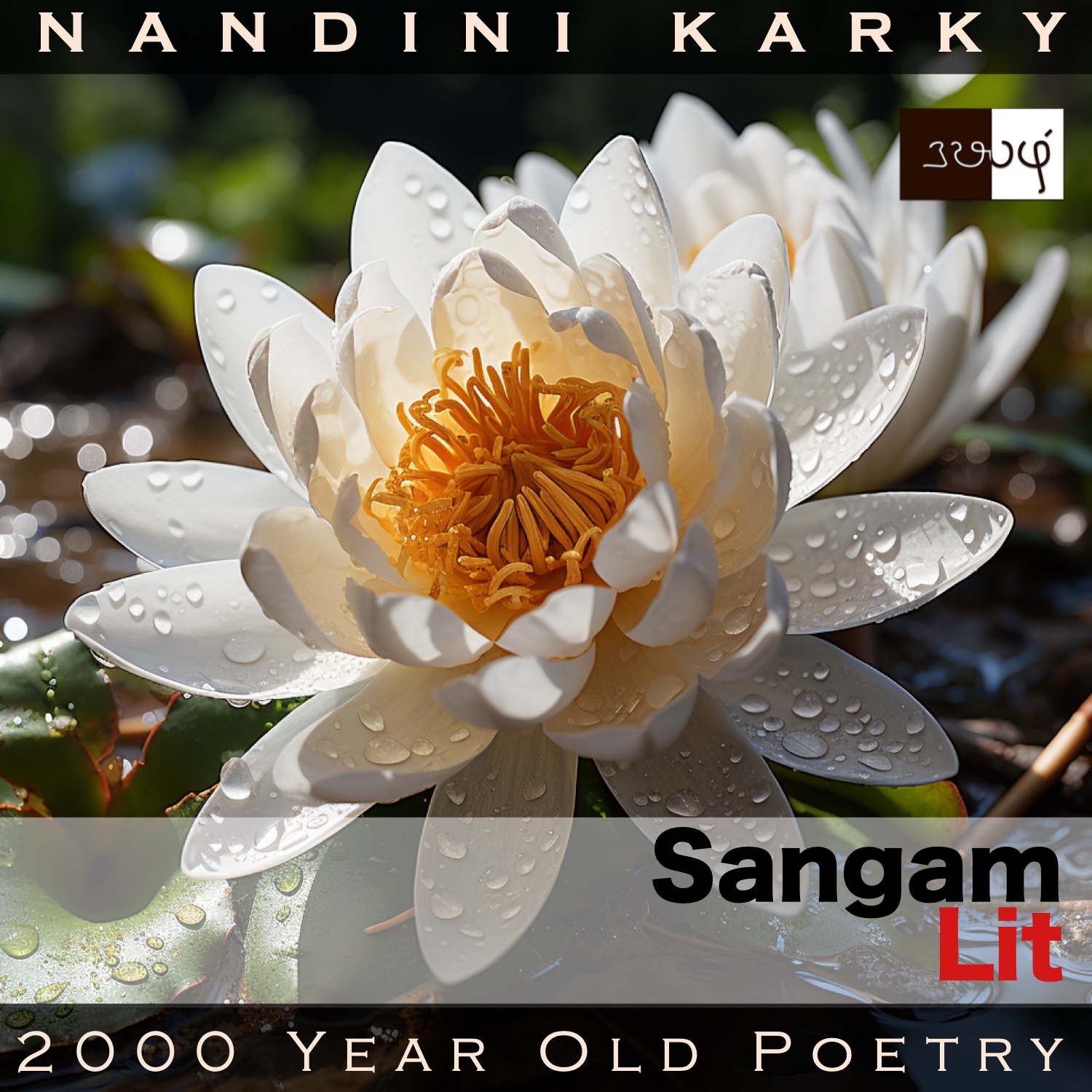Podcast: Play in new window | Download
Subscribe: Apple Podcasts | Spotify | Amazon Music | Android | iHeartRadio | Email | TuneIn | RSS | More
In this episode, we listen to the lament of a lady, as depicted in Sangam Literary work, Puranaanooru 248, penned by the poet Okkoor Masaathanaar. Set in the category of ‘Pothuviyal Thinai’ or ‘Common themes’, the verse provides a glimpse into the ascetic life of a widow in ancient times.

அளியதாமே, சிறு வெள் ஆம்பல்!
இளையமாகத் தழை ஆயினவே;
இனியே, பெரு வளக் கொழுநன் மாய்ந்தென, பொழுது மறுத்து,
இன்னா வைகல் உண்ணும்
அல்லிப் படூஉம் புல் ஆயினவே.
A crisp song sung in the voice of a widow by this poet. His words can be translated as follows:
“The small white lily is to be pitied indeed! When I was young, its leaves were my attire. Now, as my wealthy husband parted away, its seeds become the dull, untimely food I eat day after day, with suffering.”
Time to delve deeper into the words rendered here. The poet starts in the voice of a woman declaring that the water lily is a thing to be pitied. As an explanation, that woman’s voice says when she was young, she crafted her clothes from the leaves of this plant but from now on, because she has lost her husband, the water lily takes on a new role in her life, that of disliked, dull food in the form of its seeds that this woman has to eat every day, not at the proper time too, but in a penance of abstinence, remembering her husband. And thus, we see this woman is actually projecting her sorrowful change in life on that water lily and showering it with pity!
The curious element in this verse is the staple food of the widows mentioned here. We are given to understand that these women avoid rice and instead eat the seeds of the water-lily, that too, not at regular meal times but at random intervals every day. When I researched a little more on these water lily seeds, I was flooded with articles about the popped version of these seeds, called ‘makhana’ or ‘fox nut seeds’, which look a lot like their famous cousins – ‘pop corn’, but are extolled to be a better superfood, with many ‘frees’ to their name such as ‘grain-free’, ‘gluten-free’, ‘sugar-free’ and so on. In fact, it’s the go-to snack for many weight watchers for its nutrient value and low glycemic index. Isn’t it fascinating how the same food is shunned in one era and celebrated in another? If we think back on the priorities of Sangam women, we know from many Aham poems that to lose weight was to them, a symptom of disease, whereas now the reverse is being held as truth. And here we find a verse of few lines with a single thought focusing on a single object evoking multiple reflections about multiple fields such as nutrition, health, psychology of food and body image, two thousand years later!




Share your thoughts...